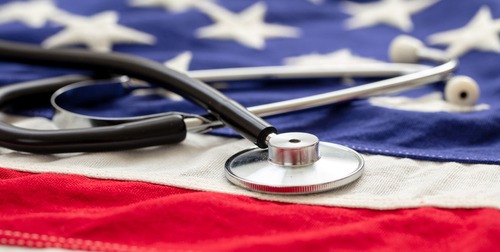
A new policy brief released this week by U.S. Sen. Richard Burr (R-NC) assessed the role of the Assistant Secretary for Preparedness and Response (ASPR) during the COVID-19 pandemic and concluded that reforms are necessary both within the agency and beyond to improve federal pandemic response.
Burr, Ranking Member on the Senate Committee on Health, Education, Labor and Pensions (HELP), submitted “Reforming and Strengthening ASPR: Ensuring Specialized Capabilities, Sufficient Capacity, and Specific Authorities to Meet 21st Century Public Health Security Threats,” with an eye toward evaluation of and improvement to federal health efforts. Leading his recommendations with the recognition that more than 600,000 Americans have died due to the COVID-19 outbreak so far, he argued that significant limitations exist on response. As a result, future health emergencies could exceed even those figures.
Improving coordination will be a major part of this. According to Burr, the U.S. Health and Human Services Department and the ASPR need clear and effective leadership to prepare and organize effective responses for state, local, tribal, and territorial authorities. Both authorities should be made clearer and more specific about the operational role of executing a coordinated response to any future public health emergency and should be routinely exercised.
“The [Assistant Secretary for Preparedness and Response] is designed to serve in a leadership position during public health emergencies, and must bring a daily urgency to the role – whether it is in the midst of a response or during routine planning and exercises to be prepared for the next threat,” the report said. “The ASPR role requires constant vigilance to help determine the public health threats that we will face and to protect the American people.”
Once the organizations have a clearer charter, Burr also recommended strengthening public-private partnerships in sectors linked to medical countermeasures, the healthcare system, and the medical supply chain. Further, he added that ASPR should then innovate and expand public health and medical preparedness and response capacity and capabilities.
“Innovation is needed for faster and more efficient identification, development, and manufacture of medical countermeasures against emerging and pandemic disease threats, as well as other chemical, biological and radiological, and nuclear agents,” the report said.
Greater funding for agencies like the ASPR, reforms to the Strategic National Stockpile, and a need for government agencies to utilize and streamline data for greater situational awareness were also discussed.
In conclusion, the report laid out that the ASPR’s job is to save lives. Changes are needed to make it better capable of achieving that.
“Reaffirming the ASPR’s leadership, strengthening the ASPR’s ability to leverage and partner with the private sector, and integrating innovative technologies throughout the preparedness framework will each help to improve the role and leave our country better prepared for the future,” the report said.




